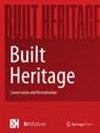Memorial agency, heritage dissonance, and the politics of memory in the preservation of Rio de Janeiro’s Valongo slave wharf
Q1 Arts and Humanities
引用次数: 0
Abstract
The article aims to understand the tensions inherent to the commemoration of a difficult and conflicted past and the conservation of dissonant heritage. It explores the politics of memory and identity, and the power struggles that underscore the heritagisation process through a study of the transformation of Rio de Janeiro’s port in preparation to host the 2014 World Cup and 2016 Summer Olympics. The paper uses the notion of heritage dissonance to shed light upon contemporary struggles over the interpretation of the port’s contested history and explores the debates that have surrounded the 'discovery' of archeological remains, which exposed a controversial past marked by collective amnesia. The paper identifies various actions, instruments, and strategies used by various actors to either support or undermine the project, from inertia and obstructionism to memorialisation and ritual agency. The analysis of these findings reveals the transformative potential of heritage, as an instrument of empowerment in the ideological battle over collective memory, and a tool of resistance against historical denial. It discusses the way debates over heritage have stimulated public debate, inflected the official historical narrative, and allowed the legacies of slavery to infiltrate collective consciousness. The paper concludes with a discussion of how heritage dissonance can engender actions leading to conflict mediation, thereby promoting reconciliation and dialogue, and, ultimately, societal change.保护里约热内卢瓦隆戈奴隶码头的纪念机构、遗产失调和记忆政治
文章旨在了解纪念艰难而充满冲突的过去以及保护不和谐遗产所固有的紧张关系。文章通过对里约热内卢港口为筹备举办 2014 年世界杯和 2016 年夏季奥运会而进行的改造的研究,探讨了记忆和身份政治,以及遗产化过程中的权力斗争。论文利用遗产失调的概念,揭示了当代在解释港口有争议的历史方面的斗争,并探讨了围绕考古遗迹的 "发现 "所引发的争论,这些考古遗迹揭示了以集体失忆为特征的有争议的过去。论文指出了不同参与者为支持或破坏该项目而采取的各种行动、手段和策略,从惰性和阻挠到纪念和仪式代理。对这些研究结果的分析揭示了遗产作为集体记忆意识形态斗争中的赋权工具和抵制否认历史的工具所具有的变革潜力。论文讨论了有关遗产的辩论如何激发公众辩论,如何影响官方的历史叙事,以及如何让奴隶制的遗产渗透到集体意识中。最后,论文还讨论了遗产的不和谐如何能够促成调解冲突的行动,从而促进和解与对话,并最终推动社会变革。
本文章由计算机程序翻译,如有差异,请以英文原文为准。
求助全文
约1分钟内获得全文
求助全文

 求助内容:
求助内容: 应助结果提醒方式:
应助结果提醒方式:


